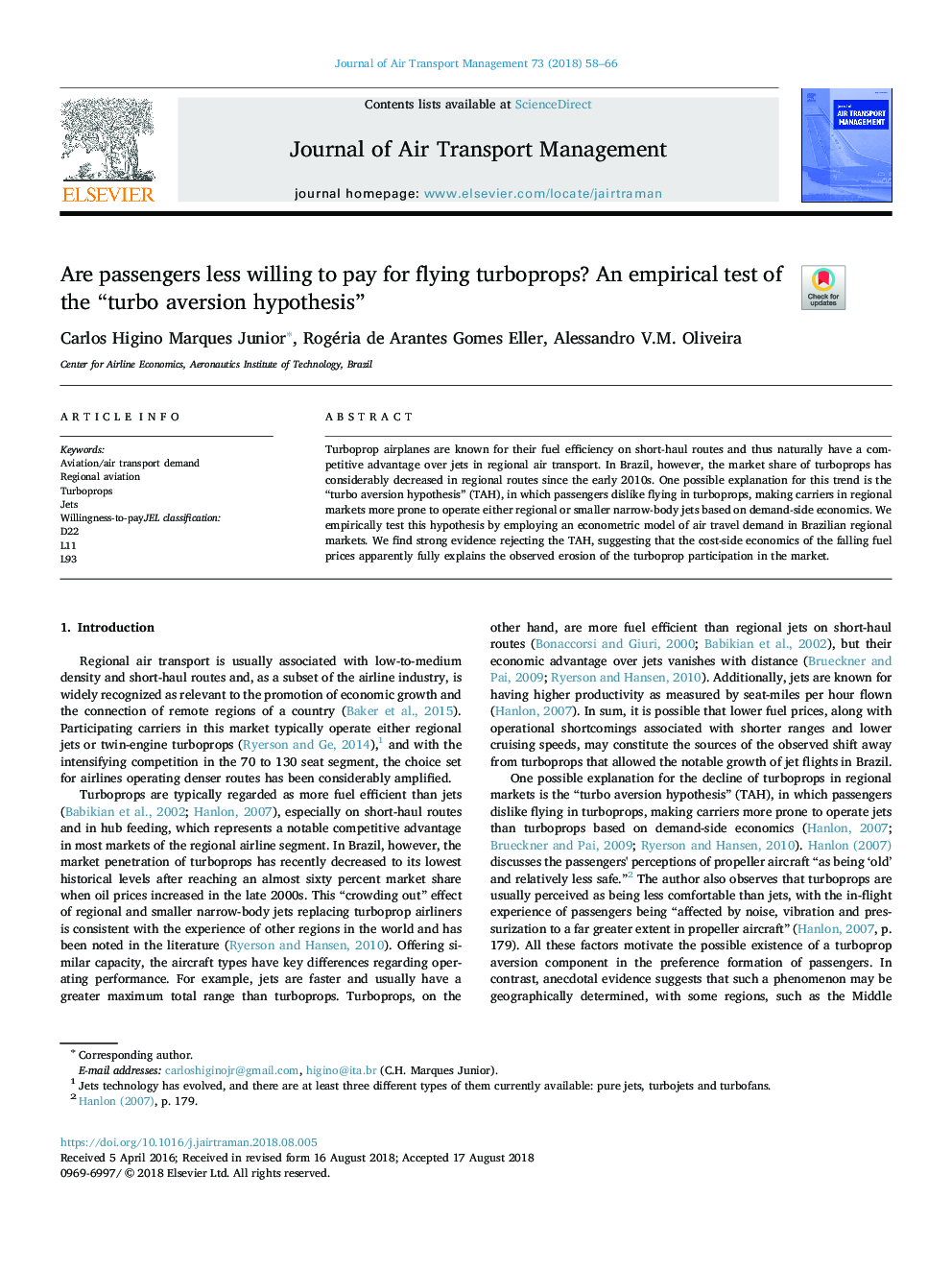| Article ID | Journal | Published Year | Pages | File Type |
|---|---|---|---|---|
| 10127802 | Journal of Air Transport Management | 2018 | 9 Pages |
Abstract
Turboprop airplanes are known for their fuel efficiency on short-haul routes and thus naturally have a competitive advantage over jets in regional air transport. In Brazil, however, the market share of turboprops has considerably decreased in regional routes since the early 2010s. One possible explanation for this trend is the “turbo aversion hypothesis” (TAH), in which passengers dislike flying in turboprops, making carriers in regional markets more prone to operate either regional or smaller narrow-body jets based on demand-side economics. We empirically test this hypothesis by employing an econometric model of air travel demand in Brazilian regional markets. We find strong evidence rejecting the TAH, suggesting that the cost-side economics of the falling fuel prices apparently fully explains the observed erosion of the turboprop participation in the market.
Keywords
Related Topics
Social Sciences and Humanities
Business, Management and Accounting
Strategy and Management
Authors
Carlos Higino Marques Junior, Rogéria de Arantes Gomes Eller, Alessandro V.M. Oliveira,
